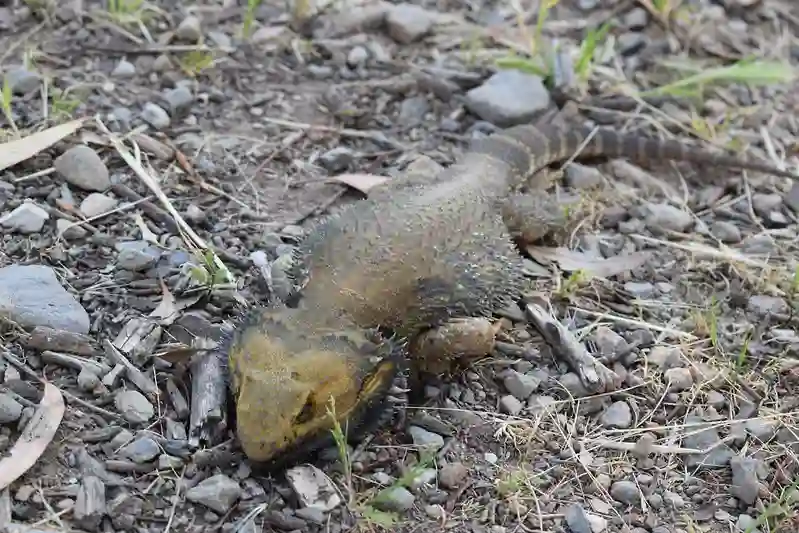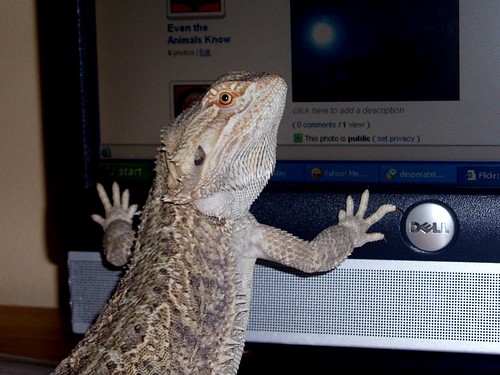Bearded dragons are amazing, curious creatures that make great pets. Unfortunately, they can be prone to health problems and if not properly cared for, can suffer from a number of different causes of death.
Knowing the common causes of death for bearded dragons is important in order to keep your pet happy and healthy. In this article, we’ll discuss some of the most common causes of death in bearded dragons so you can know what to look out for and how to prevent them.
Key Takeaways
- Metabolic Bone Disease caused by insufficient calcium intake and inadequate UVA/UVB lighting is a common cause of death for bearded dragons.
- Poor diet, temperature fluctuations, dehydration, and poor hygiene can contribute to Metabolic Bone Disease and other health issues.
- Infections caused by poor hygiene practices and dietary imbalances, impaction from swallowing foreign objects, and egg binding from lack of suitable nesting sites are also common causes of death for bearded dragons.
- Proper hygiene, a balanced diet, suitable nesting areas, supplementing with beta carotene, and consistent temperature monitoring can help prevent these health issues and ensure the longevity and happiness of pet bearded dragons.
Metabolic Bone Disease
Metabolic Bone Disease, caused by insufficient calcium intake in the diet, can lead to brittle bones and even death in severe cases. It’s important to provide your bearded dragon with a balanced diet that includes plenty of calcium from supplements such as Rep-Cal Ultrafine Powder Calcium with Vitamin D3.
In addition, UVA/UVB lighting must be provided to allow them to synthesize this essential nutrient. Poor diet, inadequate lighting, temperature fluctuations, dehydration, and poor hygiene can all contribute to Metabolic Bone Disease.
These factors should be avoided at all costs if you want your reptile companion to stay healthy and live a long life.
Impaction
Impaction is a serious issue that can easily lead to the premature demise of your beloved bearded dragon if not caught in time. This occurs when your pet swallows foreign objects, such as loose substrates like ground walnut shells, sand, or other particle substrates, and they get stuck in their digestive system.
Even something seemingly harmless like a cricket can become a dangerous trap if it has been exposed to substrate particles. Aside from impaction, respiratory problems, poor nutrition, parasites infestations, dehydration issues, and temperature fluctuations are all common causes of death for bearded dragons.
Taking steps to prevent these health issues is essential for keeping your pet healthy and happy.
Infections
Infections can be a serious issue for your beloved reptile, potentially leading to serious health complications if not caught and treated early. Poor hygiene practices and dietary imbalances are common causes of infections in bearded dragons.
Improperly cleaning the enclosure and leaving droppings or food pieces behind can lead to a buildup of harmful bacteria, which can cause infection in your bearded dragon.
Additionally, providing an unbalanced diet can lead to nutritional deficiencies that increase the risk of infection. Temperature fluctuations may also contribute to infections, as some bacterial species thrive better in certain temperatures than others.
To prevent infections from occurring, it’s essential to maintain proper hygiene within the enclosure and provide a balanced diet for your beardie. Healthy Habitat cleaner should be used at least twice a month or whenever the terrarium becomes smelly.
Age-related dietary needs should be taken into consideration when feeding your dragon. Proper temperature control is also important for reducing the risk of infection – using thermometers and other monitoring devices will help you ensure that temperatures remain consistent throughout their habitat.
Egg Binding
If you suspect your beloved reptile is having difficulty laying eggs, egg binding may be the issue – act quickly to ensure your pet’s safety!
Egg binding is a common condition in bearded dragons that can lead to serious health risks if not addressed promptly. The main cause of this condition is the lack of a suitable nesting site. Symptoms include swelling around the mid-section of the body, continual anxious movement and constant digging.
To avoid egg binding, it’s important to make sure that your bearded dragon has an appropriate nesting area available at all times. In addition, you should also make sure that they are getting adequate hydration, temperature regulation, humidity control and UV exposure as well as providing them with a balanced diet that meets their nutritional needs.
These steps will help keep your bearded dragon healthy and reduce their risk of developing egg binding or other health problems.
Vitamin Toxicity
Excessive levels of certain vitamins can be dangerous for your pet, so it’s important to keep an eye out for signs of vitamin toxicity.
Vitamin toxicity is most commonly caused by high intakes of vitamin A, which is common in bearded dragons due to their slow metabolism rate. To reduce the risk of this type of toxicity, consider using a supplement that contains beta carotene instead.
Dietary deficiency, insufficient lighting, exposure to toxins, over handling, and stress levels can all contribute to vitamin toxicity in bearded dragons as well. Providing a balanced diet with plenty of leafy greens and feeder insects should help prevent any buildup in the body.
It’s also important not to give your pet more supplementation than is recommended on the product labels or by your veterinarian. With proper dietary management and careful monitoring, you can help keep your bearded dragon safe from any potential health risks associated with vitamin toxicity.
Frequently Asked Questions
What is the average lifespan of a Bearded Dragon?
On average, bearded dragons live between 5 and 8 years depending on their environmental stress, health problems, and veterinary care. Each dragon is unique – follow breeding tips to ensure they age well and enjoy a long life.
What is the best diet for a Bearded Dragon?
Feeding your bearded dragon a varied diet is key for their health. Provide nutritious food selections, vitamin supplements, UV lighting, and prevent parasites. Reducing stress is also important – create an environment that’s comfortable for your pet!
What signs should I look out for to determine if my Bearded Dragon is sick?
Monitoring your bearded dragon’s symptoms, UV exposure, stress levels, diet nutrition and visiting the vet regularly can help you determine if they are sick. Do this to keep them healthy and safe.
How do I properly clean and maintain my Bearded Dragon’s habitat?
Clean and maintain your bearded dragon’s habitat by ensuring the tank setup is appropriate for its size, using the right substrate, providing water bowls, and having proper lighting. Take care of your dragon with knowledge, compassion, and experience!
What temperature and humidity should I keep my Bearded Dragon’s habitat at?
Monitor the temperature of your bearded dragon’s habitat to best regulate heat. Ensure an appropriate enclosure setup, diet variety, and stress management. Doing so will help keep your pet in optimal health.


Leave a Reply